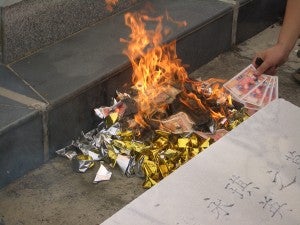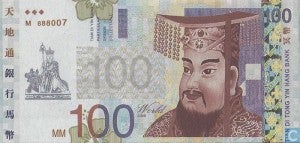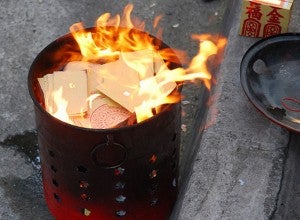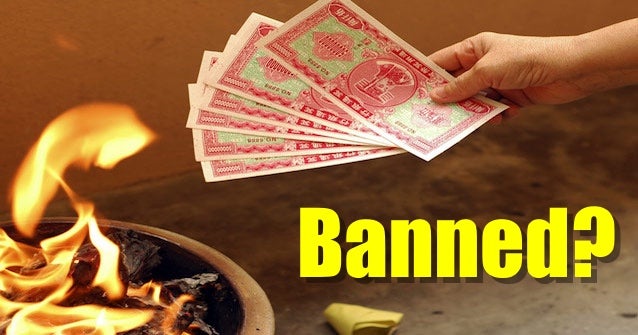In a report by Sixth Tone, the northeastern Chinese city of Harbin has recently banned the thousands year-old tradition of burning hell notes in an effort to reduce air pollution.
The city’s government banned the ancient tradition of burning the notes, as well as the production and selling of hell notes.

Source: wikipedia
A statement on the city’s official website said that they implemented this ban in order to eliminate bad funeral practices, support more “civilised” forms of ancestor worship, and to improve the environment.
Fines of at least 200 yuan (roughly RM128) will be charged to civilians caught burning hell notes, while people caught selling these notes will be fined at least 500 yuan (roughly RM321).

Source: catawiki
Hell notes are a form of joss paper made to look like real bank notes and are burned as an offering to the deceased. This tradition of burning hell notes has been around in China and other East Asian countries since before the late 19th century.

Source: wordpress
The word “hell” (Diyu in Chinese, literally meaning “underworld court”) is printed on some of these notes. Souls of the deceased are believed to go through judgement in the “underworld court” to determine their fate.
Hell notes are burned for the souls to use in the “underworld court” to help with their judgement. After being judged, they are either sent to heaven or to the labyrinth of the underworld to atone for their sins.
Also read: Malaysian Chinese Wedding Game Tradition Have Grooms-men Gulping Worms









































